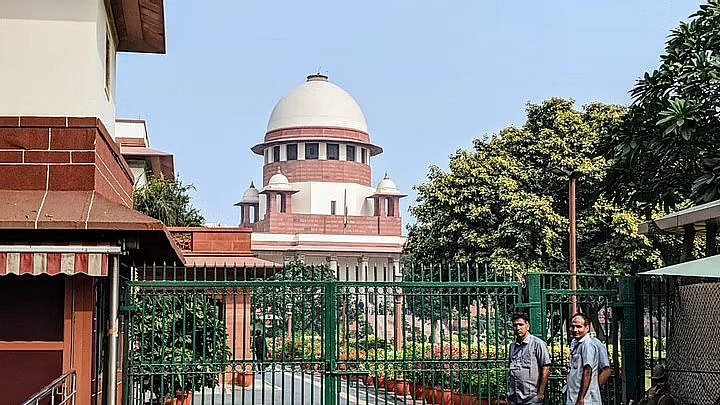The Supreme Court on Monday, 12 September, directed the Centre to pay Rs 10 lakh ex-gratia to a man who lost his job in 1980 after he was allegedly arrested in December 1976 by the Pakistani authorities, purportedly for espionage activities.
A bench comprising Chief Justice U U Lalit and Justice S R Bhat observed that in the peculiar facts and circumstances of the case, ends of justice would be met if the authorities are directed to pay Rs 10 lakh ex-gratia to the Rajasthan-based man.
The apex court directed that the amount be handed over to the petitioner, who claimed he was terminated from service for continued absence from duty, within three weeks from September 12.
The petitioner claimed he was arrested and sentenced to 14 years' jail in Pakistan and he came back to India in 1989.Initially, the bench said ex-gratia of Rs 5 lakh be given to the petitioner.
The counsel appearing for the petitioner requested the bench to raise the amount, saying the 75-year-old petitioner is bed ridden and dependent on his daughter."He has worked for the nation," the counsel argued.
As the bench said it would raise the ex-gratia to Rs 10 lakh, the counsel for the Centre noted it might mean there was some merit in the plea.
"We are not saying what you are saying is wrong. That could perhaps be standard response whenever such issues are raised before the court and perhaps correctly also,"Supreme Court Bench
"In the peculiar facts and circumstances of the case placed on record, in our view, ends of justice would be met if the respondents (Centre and others) herein are directed to pay Rs 10 lakh by way of ex-gratia payment to the petitioner," it said, while disposing of the plea arising out of a verdict of the Rajasthan High Court.
The apex court made clear the payment of ex-gratia shall not in any way reflect upon the liability of the respondents or the entitlement of the petitioner.
Petitioner Claimed He Received Offer from Special Bureau of Intelligence
According to the petitioner, he was working in the Railway Mail service and his job was terminated due to long absence from work. He had claimed before the high court he received an offer from the Special Bureau of Intelligence to render his services towards the nation and he gladly offered himself.
The petitioner had claimed before the high court that he was fortunate enough to complete the job assigned to him twice but on third occasion when he was sent to Pakistan he was intercepted by the Pakistani Rangers and arrested in December 1976 for espionage.
(At The Quint, we question everything. Play an active role in shaping our journalism by becoming a member today.)
